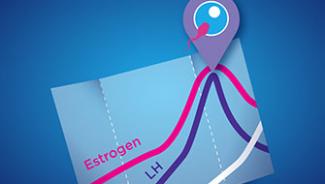When Should I Start Taking a Prenatal Vitamin? (The Earlier, the Better!)

When is the right time to start taking a prenatal multivitamin? Is it at a certain age, or when you’re trying to conceive, or when you’re already pregnant? And what do these targeted formulas do exactly? Let’s take a closer look at prenatal vitamins and when to start adding them to your routine.
What is a prenatal vitamin?
A prenatal vitamin is a blend of supplemental vitamins and minerals crafted to meet the needs of women who are pregnant or could become pregnant. Prenatal multivitamins can provide reliable nutrition in vital areas—supporting baby’s healthy development as well as mom’s prenatal wellness. Prenatals provide peace of mind that your body is getting the right foundational support at such an important time.
Who should take a prenatal vitamin?
In general, prenatal vitamins are designed specifically for women who are pregnant or trying to conceive. While you can try getting the recommended nutrients for healthy pregnancy just through food, that involves a lot of researching and tracking. Supplementing with prenatal vitamins gives you peace of mind that you’re more likely to be getting the recommended amounts of nutrients on a daily basis, especially on days when your diet is not so great.
Do talk to your healthcare provider about any supplements you’re taking or planning to take.
When should you start taking a prenatal vitamin?
Prenatal vitamins are made to provide critical vitamins and minerals for your baby and you on a daily basis—and you should ideally start taking these vitamins even before conception.
1. When You Decide to Try to Conceive
If you’re not pregnant yet, taking prenatal multivitamins helps to build your body’s levels of key nutrients in preparation for pregnancy.*
2. As Soon as You Find Out You Are Pregnant
If you’re already expecting, taking a well-rounded prenatal vitamin provides the recommended nutrients to help support a healthy pregnancy and healthy fetal development.*
Why take prenatal vitamins before you are pregnant?
What is the main reason to start taking prenatal vitamins before getting pregnant? It’s for the folate. Folate supports early neural tube development from the time of conception and in the first 3-4 weeks after conception. This important time is when baby’s brain and spine start to form. Since folate takes some time to build up in the body and since most women don’t know they’re pregnant until around 2 weeks after conception (around the time of their first missed period), taking folate regularly before pregnancy can help avoid a gap. In fact, the Centers for Disease Control (CDC) recommends that women who could get pregnant should be taking the equivalent of 400 mcg of folate daily.
Another reason to take prenatal vitamins before pregnancy is to start building the habit! Add prenatals into your regimen today, and when you’re pregnant it will already be a solid part of your self-care.
What nutrients are in a prenatal?
A regular prenatal vitamin should include nutrients that moms need more of during pregnancy, such as iron, folate, and vitamin D3.
Iron
Iron is important during pregnancy as it helps support healthy oxygen transport from mom to baby. Pregnant women are vulnerable to iron deficiency, so taking prenatal vitamins can help you get the iron you need. Many iron supplements can lead to constipation and stomach upset, so choosing the right form of iron can really help you stay on track with your prenatal vitamin! For a tummy-friendly iron, look for products that can be taken on an empty stomach, such as fermented iron products or products that contain chelated iron bisglycinate. The recommended amount of iron for pregnant women (100% Daily Value) is 27 mg based on values from the FDA (Food & Drug Administration).
Folic acid or folate
Folate, or folic acid, is a general term for a group of water-soluble B vitamins also known as vitamin B9. Folate helps support healthy birth weight and healthy development of baby's brain and spinal cord. It’s recommended to start taking folate before starting to try for a baby, if possible.
While folate naturally occurs in leafy greens, like spinach and kale, your body has to break down the folate both in food and in supplements to make methylfolate, which is the form it can use. Breads and cereals are often fortified with folic acid, and it too has to be broken down by the body to make bioavailable methylfolate. Prenatal supplements may be formulated with folate, folic acid, or methylfolate. (Your healthcare professional can help with questions about the right type for you.) As noted above, it’s recommended to get the equivalent of 400 mcg of folic acid daily.
Vitamin D
Vitamin D is an essential nutrient during pregnancy, as it not only supports the immune system, but also supports healthy bones and teeth. While humans make some vitamin D with help from direct sunlight, many factors interfere with our ability to make enough of this essential nutrient in this way. The FDA recommends at least 15 mcg (600 IU) daily for pregnant and breastfeeding women.
What to look for in a prenatal vitamin
Since you want to support your baby’s healthy development every step of the way, you can look for top-of-the-line nutrition from high-quality, third-party validated prenatal vitamins. Everything you need to know should be on the label (or web page).
- Look for certifications. This tells you that an independent third-party has reviewed and validated the vitamin’s ingredients.
- Check the daily values of ingredients listed on the Supplement Facts Panel. Does it deliver at least 27 mg of iron, at least 400 mcg of some type of folate, and 15 mcg of vitamin D3? If you are over the age of 35, you can get prenatal vitamins for your life-stage that have higher levels of some nutrients (ask your healthcare provider about what’s best for your needs).
- Does the vitamin contain artificial flavors, colors, or added sweeteners? Some types of gummies contain additives and fillers you may not want to consume on a daily basis.
- Is it formulated for absorption? This can include being made with fermented nutrients and whole foods that the body can easily recognize and digest.
- Are there specific directions for when to take it? Some multivitamins are so gentle you can take them anytime, even on an empty stomach.
Tips for taking prenatals
You may wish to take a prenatal multivitamin with food to help keep the tummy settled. Look for products that can be taken on an empty stomach, such as fermented multivitamins.
It also helps to know your habits in order to set yourself up for success. If you always take your vitamins with breakfast once a day, a one-tablet-daily prenatal may be the best choice for you. However, if you like spacing out your vitamins, other prenatal vitamins are designed so that a daily dose is spread out between multiple tablets that can be taken throughout the day.
It’s best to listen to your body and notice if your prenatal is causing any queasiness, so then you can adjust from there. These days some prenatal multivitamins are even formulated with tummy-soothing ginger for morning sickness built right in, which can help if you’re experiencing pregnancy-related nausea. Your healthcare professional may also have suggestions to help with any queasiness, such as spacing multi-dose vitamins throughout the day or taking with meals or water.
The key thing to remember is that adding a reliable prenatal multivitamin to your day can help maintain solid nutritional foundations. Whether you’re planning to be pregnant or already expecting, these supplements offer highly tailored support for this important time in your life.

Looking for insights on your health journey? Clearblue® sends you curated, science-backed articles right to your inbox.
*These statements have not been evaluated by the Food and Drug Administration. This product is not intended to diagnose, treat, cure, or prevent any disease.

How to get pregnant faster
There are a few key things you need to know if you want to maximise your chances of getting pregnant.




